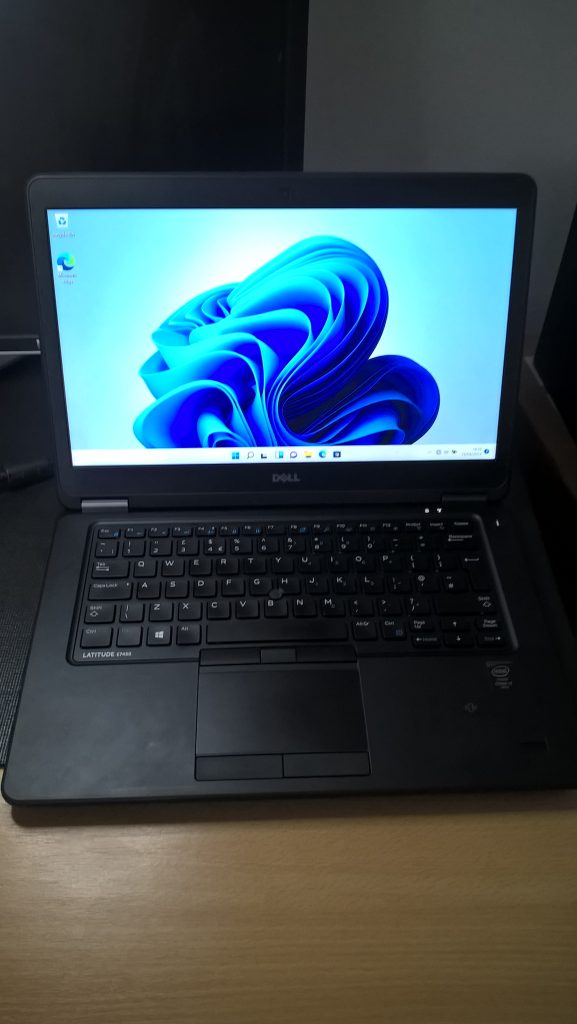Troubleshooting Random Freezes: A Comprehensive Guide to Optimizing Your Gaming PC
Gaming on a PC provides an immersive experience that many gamers cherish. The ability to customize hardware and tweak Software settings allows for unparalleled personalization. However, when your computer starts to freeze randomly during games, this experience can quickly turn frustrating. Fear not – understanding the potential causes and exploring solutions can help you enjoy a smooth gaming experience once again. In this detailed blog post, we’ll explore common issues and solutions to help resolve and even prevent your computer from freezing randomly, specifically while gaming.
Understanding the Problem
Experiencing your computer freeze at random intervals can be likened to your favorite movie pausing unexpectedly mid-action – it’s jarring and disrupts the entire experience. When a computer freezes while running games, it’s generally indicative of a problem within the system’s hardware or Software. Exploring the symptoms can provide insight into root causes. Here is an outline of potential issues:
1. Hardware Limitations
a. Overheating:
One of the most common reasons PCs freeze during gaming is overheating. When components like the CPU or GPU overheat, the system can cause temporary freezing as a self-preservation measure to avoid heat-induced damage. It’s critical to monitor your system’s temperatures using tools like HWMonitor or MSI Afterburner to ensure they remain within safe operational limits.
b. Insufficient Resources:
Gaming demands a significant amount of resources, particularly from the CPU, GPU, and RAM. If your system doesn’t meet the minimum requirements of a game, you may experience freezing. Verify that your computer meets the recommended specifications of the games you are playing.
c. Failing Hardware:
Components like hard drives, SSDs, RAM, or even a power supply unit (PSU) can cause system instability when they begin to fail.
2. Software Conflicts
a. Driver Issues:
Drivers facilitate communication between your operating system and hardware. Outdated or corrupt graphics drivers are a notorious cause of random freezes. Ensure that drivers for your GPU, as well as other critical hardware components, are up to date.
b. Background Software:
Other software running in the background can interfere with your games. Programs like antivirus, updates, or even web browsers can consume resources, pushing your hardware to its limits.
c. Operating System Issues:
Sometimes, the operating system itself becomes the culprit. A corrupt installation, missing updates, or system errors can cause instability when running resource-intensive applications.
3. Configuration Settings
Configurations within the game or the operating system can also lead to performance issues. Improper settings can push systems beyond capacity or improperly allocate resources, leading to freezing and other performance hiccups.
Troubleshooting and Solutions
1. Monitoring System Performance and Specs
First, ensure that your system’s specifications meet or exceed the game’s requirements. Use tools like CPU-Z and GPU-Z to check your CPU, GPU, and RAM capabilities. If your system is meeting these benchmarks but still freezes, further investigation is required.
Monitoring Temperatures
Use software to monitor your CPU and GPU temperatures, such as Core Temp or GPU-Z. Ideal temperatures for CPUs and GPUs under load should generally not exceed 85°C. If temperatures rise above this threshold, consider solutions to boost cooling efficiency:
- Enhance Airflow: Ensure that your case has ample airflow. Clean dust from fans and vents, and consider adding more fans if necessary.
- Thermal Paste Replacement: Over time, the thermal paste that aids in cooling your CPU can degrade. Reapplying fresh thermal paste can improve heat dissipation.
2. Update All Drivers
Periodically update drivers to maintain optimal performance and compatibility. Use the device manager in Windows or third-party software like Driver Booster to find and install the latest drivers for your GPU, motherboard, and other components.
Updating GPU Drivers:
Visit the website of your GPU’s manufacturer (such as NVIDIA or AMD) to obtain the latest drivers. Follow installation instructions carefully, and ensure to restart your system after updating.
3. Managing Background Processes
Background processes can heavily tax system resources. Use the Task Manager in Windows:
- Terminate Unnecessary Processes: Identify and close unnecessary background applications to free up resources for your game.
- Startup Optimization: Disable non-essential programs from launching at startup using task manager or by configuring the startup settings within the system’s settings.
4. Optimize Game and System Settings
Lowering in-game settings can significantly alleviate resource demands. Consider the following:
- Resolution and Details: Set your game to a lower graphical setting or resolution if your system struggles under higher settings.
- VSync and FPS: Enabling VSync or capping your frames-per-second (FPS) can stabilize performance and reduce potential stuttering and freezing.
5. Hardware Maintenance and Upgrades
If freezing becomes frequent or pervasive:
a. Check Power Supply and Storage:
- Hard Drive and SSD Check: Run regular disk checks using tools like CrystalDiskInfo to monitor health and performance.
- Upgrade PSU: Ensure your power supply unit can deliver adequate power to your components. A PSU not providing enough wattage can cause numerous stability issues.
b. Consider Hardware Upgrades:
- RAM: Insufficient RAM can cause stuttering and freezing, particularly with demanding games. Upgrading to 16GB or more can provide a better performance buffer.
- GPU: If your GPU is consistently struggling, upgrading may be necessary for smoother gaming at the desired settings.
6. System Refresh or OS Reinstallation
As a last resort, performing a clean installation of the operating system can resolve deep-seated system issues. Ensure to backup necessary data before doing this.
Going Beyond: Preventative Measures
Preventative maintenance can stave off many issues before they develop into chronic problems:
- Regular System Maintenance: Scheduled cleaning of system internals to remove dust and ensure proper airflow.
- Routine Software Updates: Periodic updates of OS and applications to patch security vulnerabilities and improve compatibility.
- Backups and Recovery Plans: Always keep important data backed up, and form a recovery plan in case of sudden system failures.
Closing Thoughts
By methodically diagnosing potential issues and applying targeted solutions, you can resolve many causes of random freezes during gaming. The harmony of rich gaming environments coexisting with stable system performance can be achieved through continual upkeep, thoughtful upgrades, and a touch of technological insight. Empower yourself to maintain your system effectively, and enjoy seamless gaming adventures for years to come.
Share this content:




Response to Troubleshooting Random Freezes
Thank you for sharing this informative post on troubleshooting random freezes during gaming. As someone who has faced similar issues, I’d like to add some insights and practical tips that may help others encountering this frustrating problem.
1. Conduct a Stress Test
Before diving into Software solutions, run a stress test on your CPU and GPU using tools like Prime95 and FurMark. This will help identify whether the hardware is stable under load or if it exhibits signs of instability, indicating potential overheating or power supply problems.
2. Check Power Supply Specifications
Ensure that your power supply unit (PSU) is not only sufficient in wattage but also of good quality. A PSU that doesn’t deliver stable power may contribute to system freezes, particularly during periods of high demand such as gaming. Consider using a PSU tester if you’re uncertain about its health.
3. Adjust Virtual Memory Settings
If low RAM is an issue, adjusting the virtual memory settings in operating systems like Windows may help alleviate stress on physical RAM. Make sure to set the virtual memory size to at least 1.5 times your physical RAM to improve overall system responsiveness during gaming sessions.
4. Disconnect Unused Peripherals
Sometimes, peripherals can trigger conflicts that lead to freezing. Disconnect any